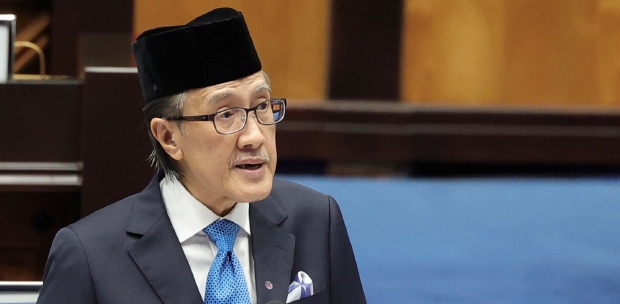In the intricate tapestry of economic indicators, few metrics draw as much attention and debate as the inflation rate.
In the case of Malaysia, where the inflation rate currently stands at 1.5 per cent in November last year, a question arises - is this figure a cause for celebration? Or does it conceal underlying challenges that demand a closer look?
To answer this, we must delve into the intricacies of what propels this seemingly modest inflation rate and assess its implications for the broader economic landscape.
A crucial aspect to consider is the recent report from the Malaysian Institute of Economic Research (MIER) that indicates a decline in both the consumer sentiments index and the business conditions index for the second quarter of 2023.
This signals a potential reduction in consumer demand, raising concerns about the driving forces behind the subdued inflation rate. If low demand is, indeed, a key factor, the ostensibly positive inflation figure may not be the harbinger of economic well-being that it appears to be.
A declining trend in inflation rates should not be hastily equated with a thriving economy. Rather, it might serve as a red flag, pointing towards a more insidious threat - deflation.
The Japanese economy's protracted battle with deflation serves as a stark reminder of the perils, associated with negative inflation. Deflation not only discourages consumer spending but also dissuades businesses from making essential investments, potentially leading to an enduring economic downturn.
It is crucial to recognise that the extremes, whether in the form of excessively high or extremely low inflation rates, can be detrimental. Embracing the Goldilocks principle, finding the delicate balance that constitutes the "just right" amount of inflation becomes paramount.
Too high an inflation erodes the purchasing power of consumers while too little can plunge an economy into the treacherous terrain of deflation. Striking this equilibrium is indispensable in ensuring a sustained economic health.
The view of Samirul Ariff Othman, a senior consultant with Global Asia Consulting, that the pursuit of economic prosperity requires a shift in focus from short-term fluctuations to long-term structural reforms, should be looked into. The true measure of economic success lies not only in the current inflation rate but also in the realisation of comprehensive economic goals.
In Malaysia, this necessitates a dedicated effort towards achieving the seven goals as outlined in the Madani Economy. Additionally, it is imperative to revisit our own Shared Prosperity Vision 2030 (Wawasan Kemakmuran Bersama 2030). This government blueprint, released in 2020 for the period of 2021 to 2030, aims to increase the incomes of all ethnic groups. Specifically, it focuses on the Bumiputera, encompassing the B40 (lower income group), the hardcore poor, those in economic hardship, individuals in economic transition, Orang Asli, Sabah and Sarawak bumiputeras, the disabled, youths, women, children and senior citizens.
Samirul Ariff, who is also a senior researcher at MIER, opines that the Madani Economic Paradigm is not a mere theoretical construct but a practical guide for sustainable economic development. Rather than fixating on transient indicators influenced by cyclical and seasonal variations, attention should be directed towards the enduring structural reforms that underpin a resilient economy. Failure to do so risks rendering the Madani Economic Paradigm a mere aspiration, echoing the sentiment of the Malay proverb, "indah khabar dari rupa" (too good to be true).
In conclusion, the interpretation of Malaysia's 1.5 per cent inflation rate extends beyond the numerical value. A closer examination is warranted to discern whether it reflects a healthy economic trajectory or conceals potential challenges, particularly those associated with declining demand and the spectre of deflation.
The pursuits for economic well-being demand nuanced understanding and deep commitment to the long-term goals that will ensure Malaysia's economic resilience and prosperity.
*The writer is the chief executive officer of Institute Masa Depan Malaysia





